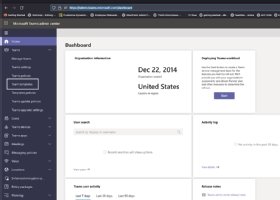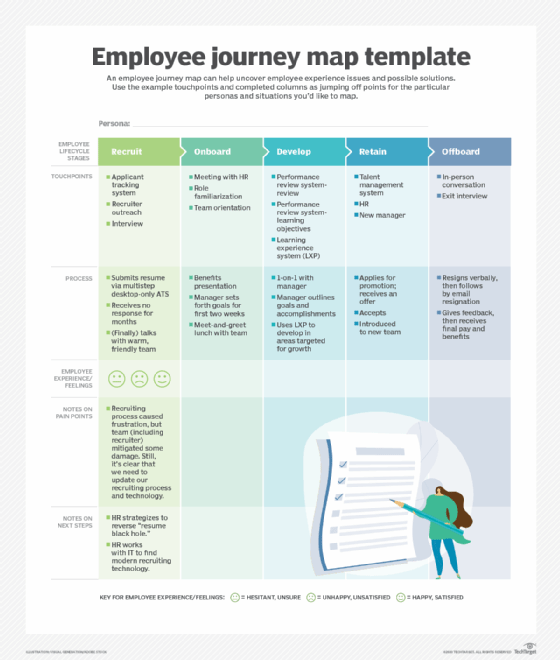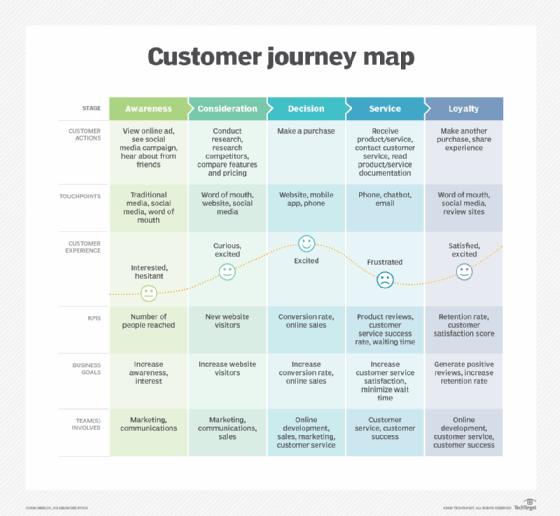What is a template?
A template is a form, mold or pattern used as a guide to create something consistently and efficiently. Templates can be physical objects, such as a paper template for cutting fabric, or digital files used in design software like Photoshop.
Why are templates beneficial?
Using a template offers numerous advantages, such as the following:
- Time efficiency. Templates eliminate the need to start from scratch each time a new item is created.
- Consistency. Ensures a uniform output across different instances of a project.
- Quality Control. Standard operating procedures (SOP) and structures improve accuracy and reduce errors.
- Productivity. Templates streamline repetitive tasks, making workflows faster and more effective.
For example, Microsoft Teams provides predesigned templates for collaboration, ensuring that projects start with a structured approach. Similarly, businesses use employee journey map templates to optimize workforce planning.

Examples of template use cases
Here are some applications for templates.
Documents
Document templates typically contain placeholder text or a standard layout that should be repeated for each new file created. Thus, the template allows users to reuse certain standard sections of text and simply fill in the variable parts rather than create an entirely new document every time. Common document templates include the following:
- Resumes and cover letters.
- Contracts and agreements.
- Marketing brochures.
Website design
With a general design template, users can change the color scheme, images and text to create a unique website without starting from scratch.
Programming and software development
In programming, a template can be used to create Unified Modeling Language (UML) diagrams like activity diagrams, class diagrams and sequence diagrams. There is also the Standard Template Library for object-oriented computing languages, such as the Microsoft Foundation Class (MFC) Library where programmers can choose individual template classes to modify.
Material and crafting
Templates are often used in woodworking, sewing and other physical crafting projects to ensure that pieces are cut out of materials correctly.

Where can you get templates?
Users can purchase or download premade templates for website design, document creation and more, with a simple Google search. Or users can create their own templates to use repeatedly.
In certain cases where the template is highly specialized, users might need to hire a professional to create it for them or purchase the rights to use the templates.
Business software often includes templates for common marketing documents and other administrative tasks. Microsoft Word's numerous template options are a good example.

How to choose the right template
When choosing or creating a template, there are a few things to keep in mind:
- Prioritize templates for heavy volume, repeatable tasks or where specifications are needed.
- The template should be easy to use and understand.
- It should be flexible enough to be used for multiple purposes.
- The template should be designed for the intended audience.
- The template should be compatible with the software you're using.
See video example below for a template on how to build a disaster recovery plan.
Some sample templates
Below are links to articles that include some commonly used templates, as well as tips on how to build on and tailor them to the organization's specific needs:
- Customer service email templates.
- Remote access security policy template.
- Free business impact analysis (BIA) template.
- Incident response plan template.
- Cybersecurity impact analysis template.
- IT risk assessment template.
- Data storage policy with guidelines template.
- Complete crisis management guide and free template.
- Free IT disaster recovery plan template and guide.
- How to design an employee journey map (with template).
- How to create a customer journey map -- with template.
- Free business continuity plan template and guide.
- How to create and deploy a VMware VM template.
